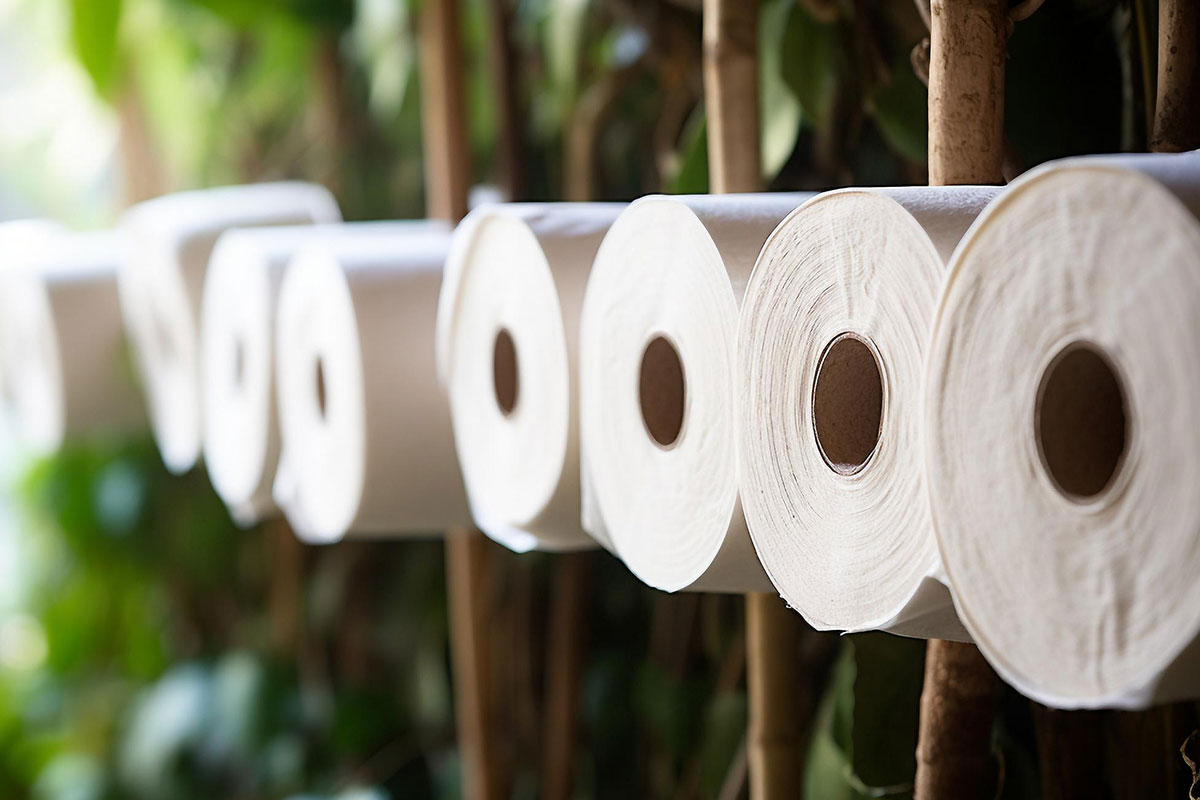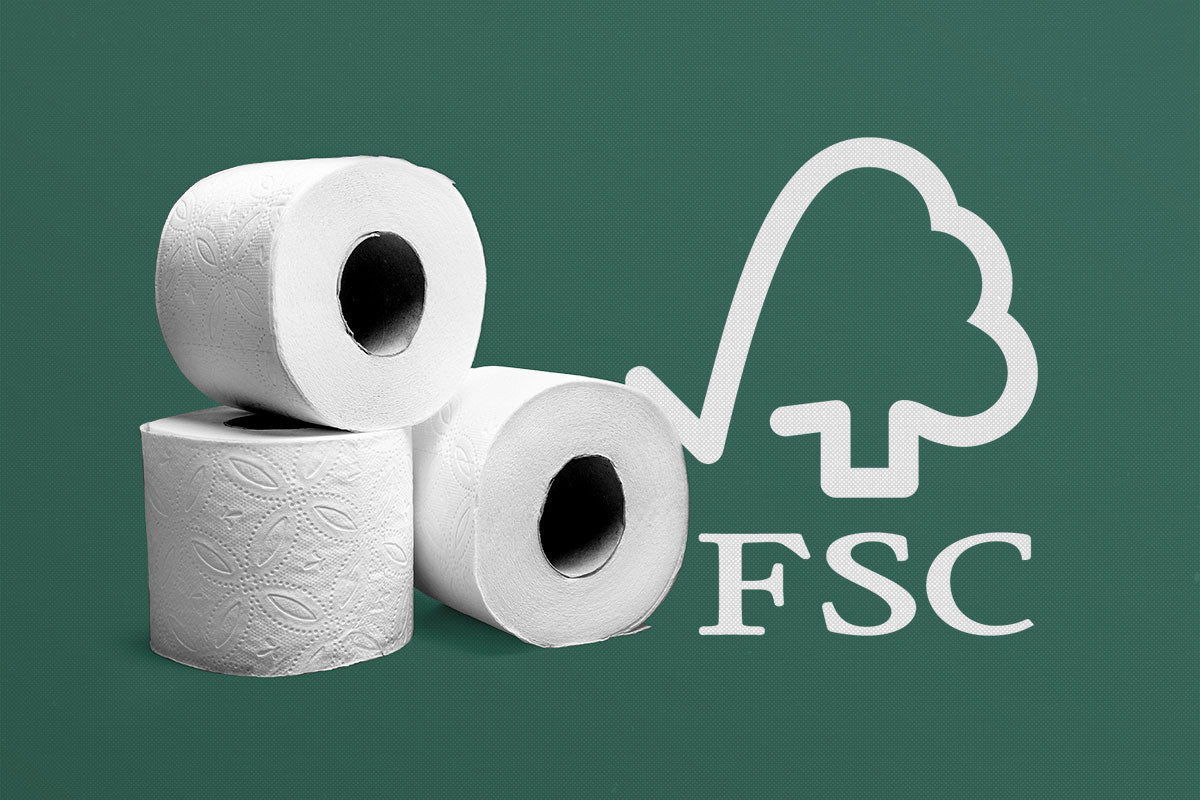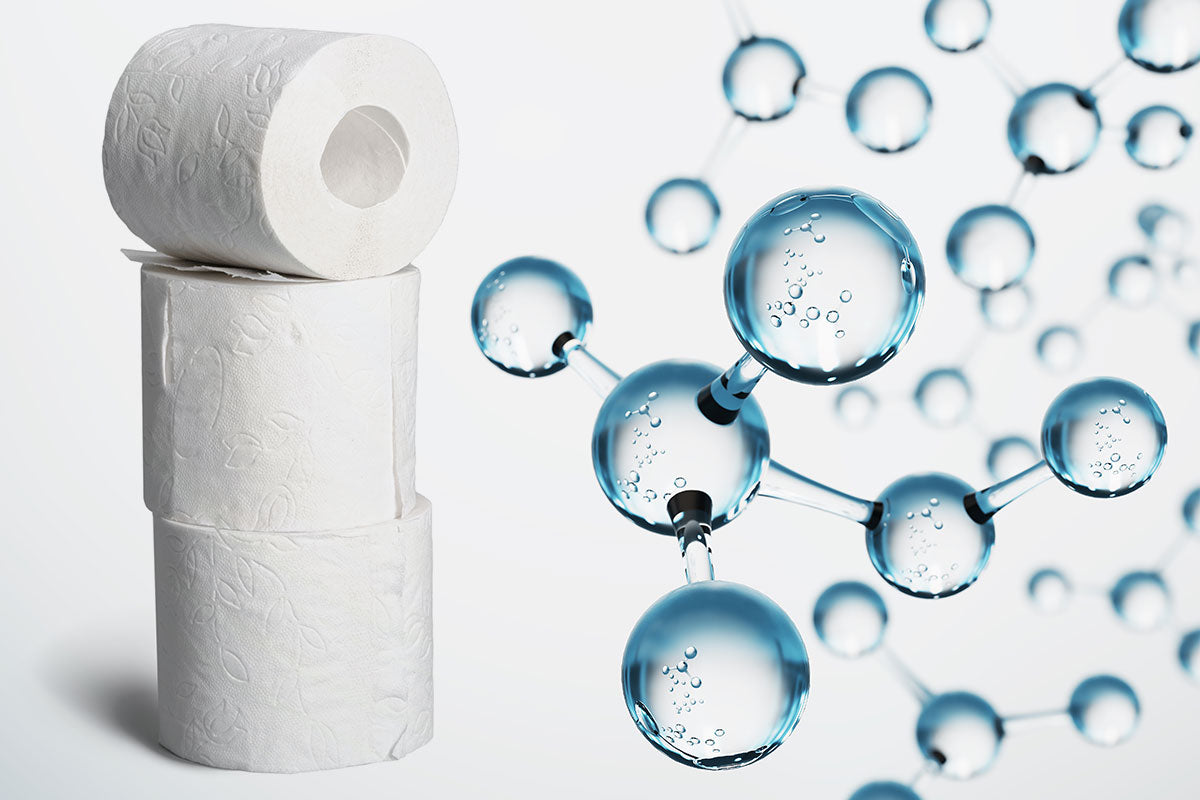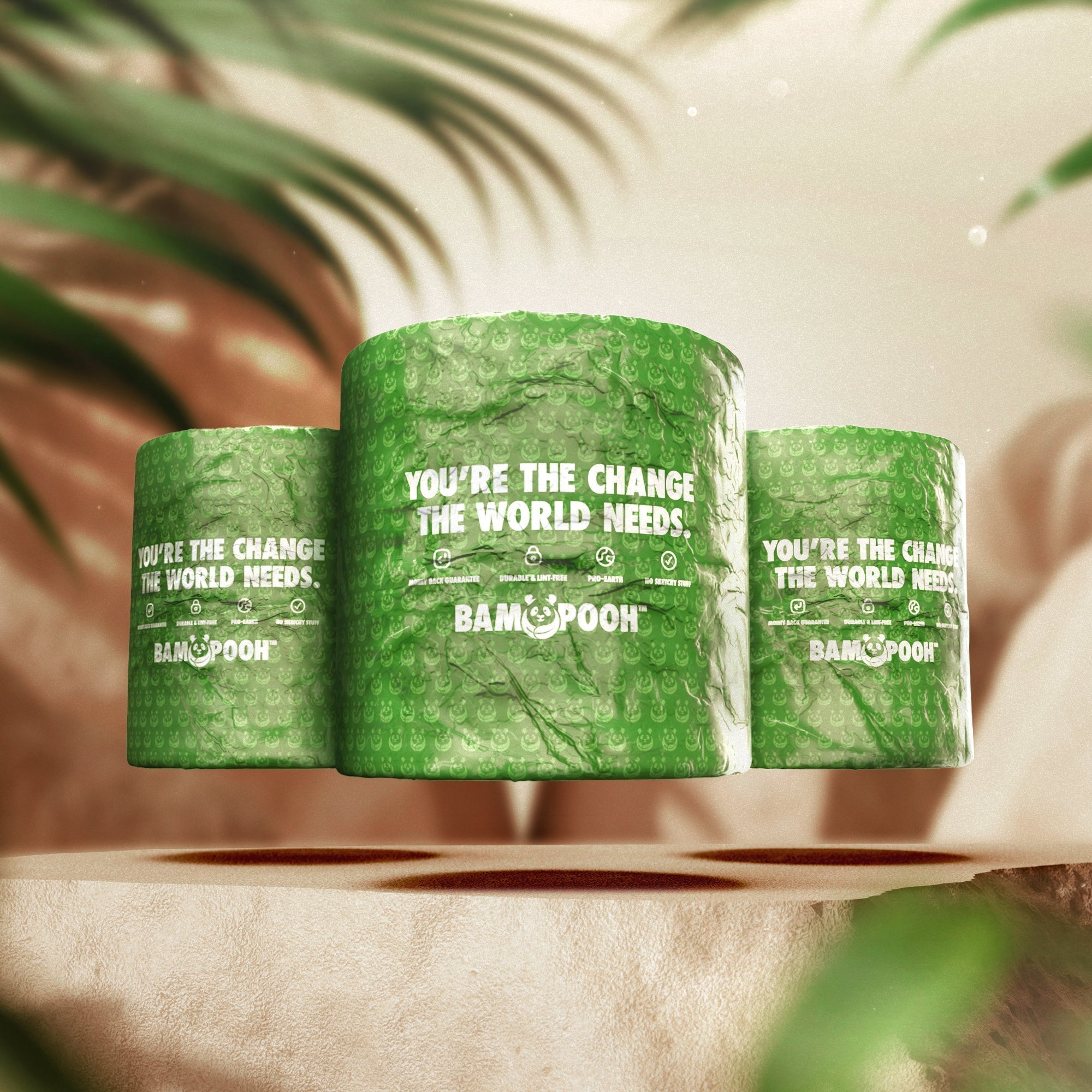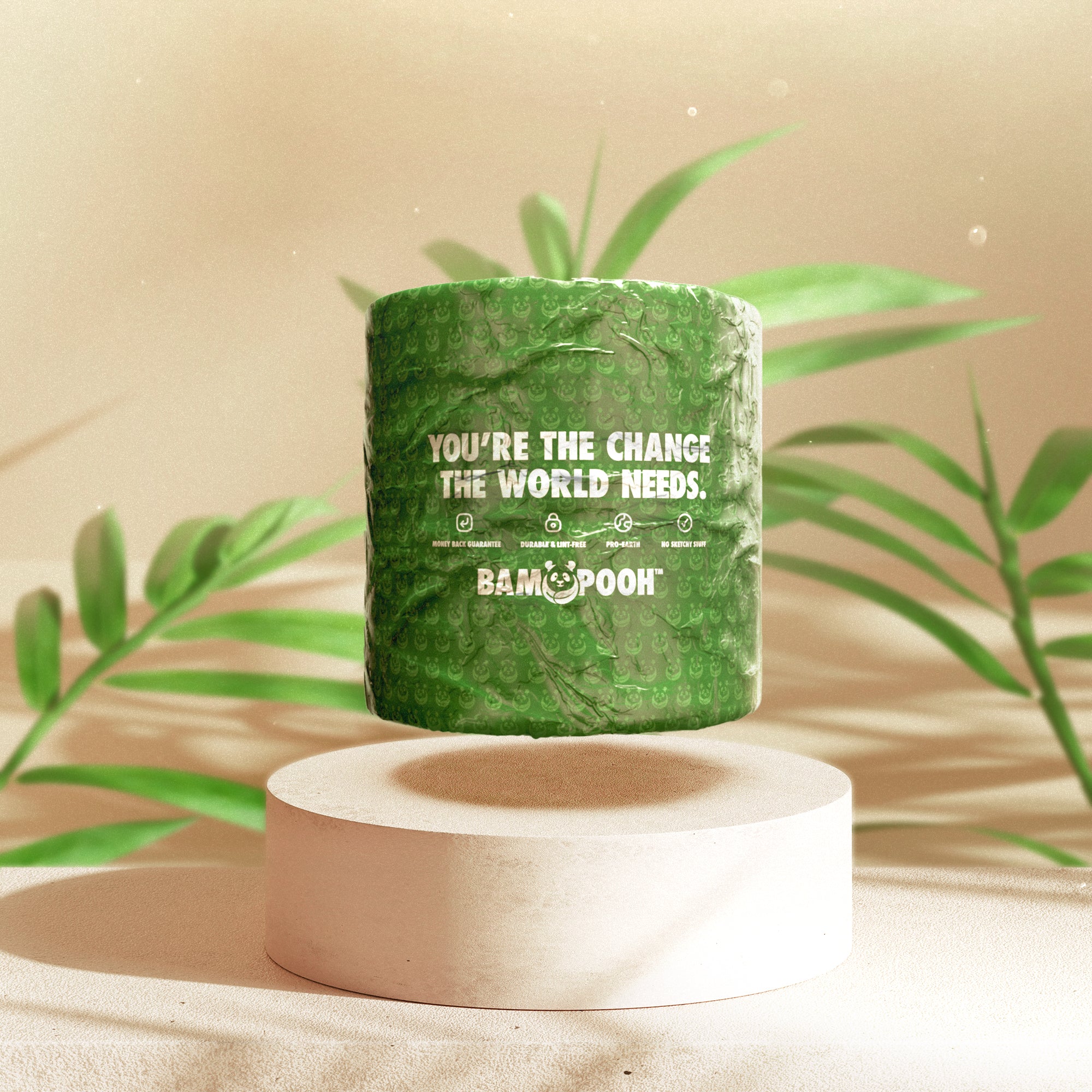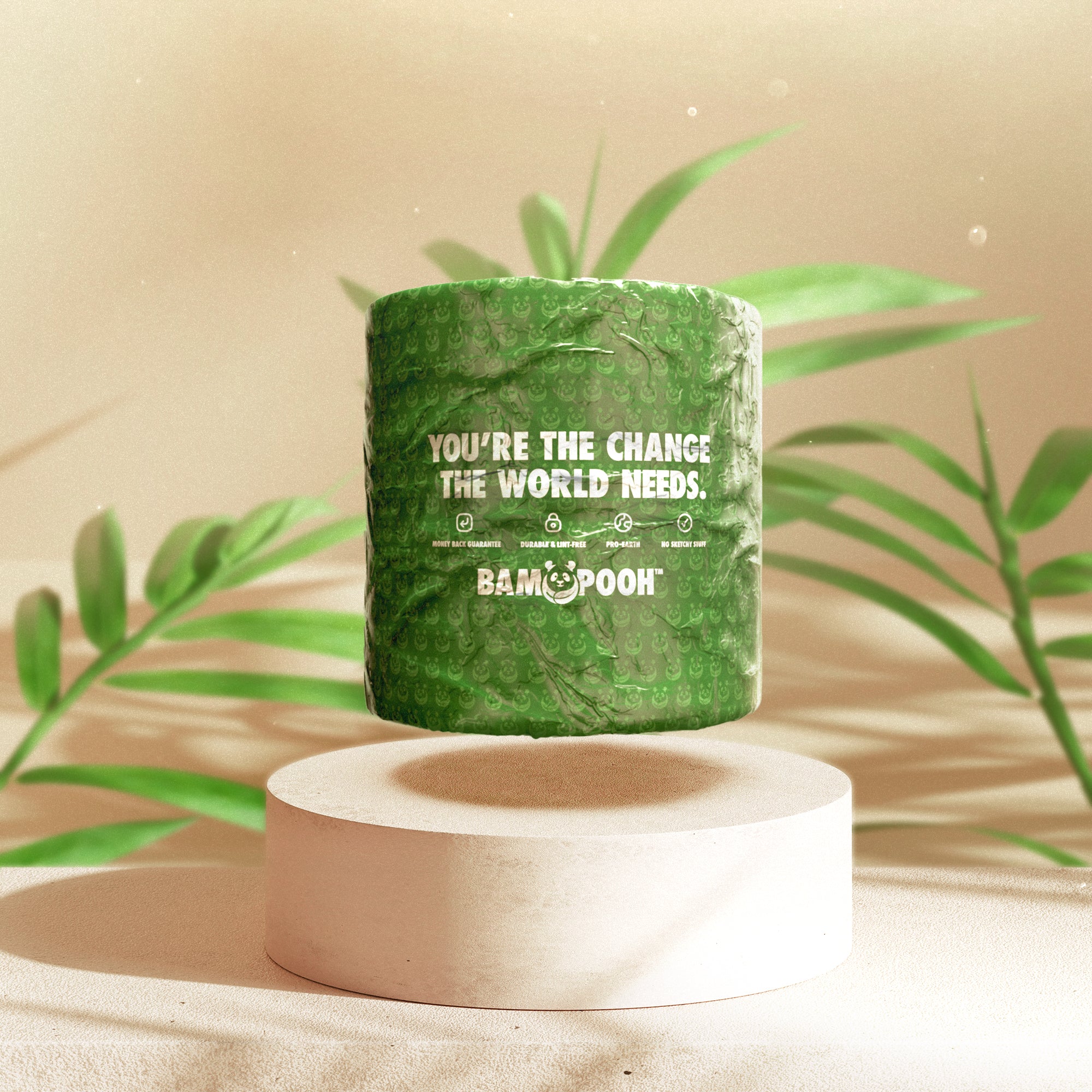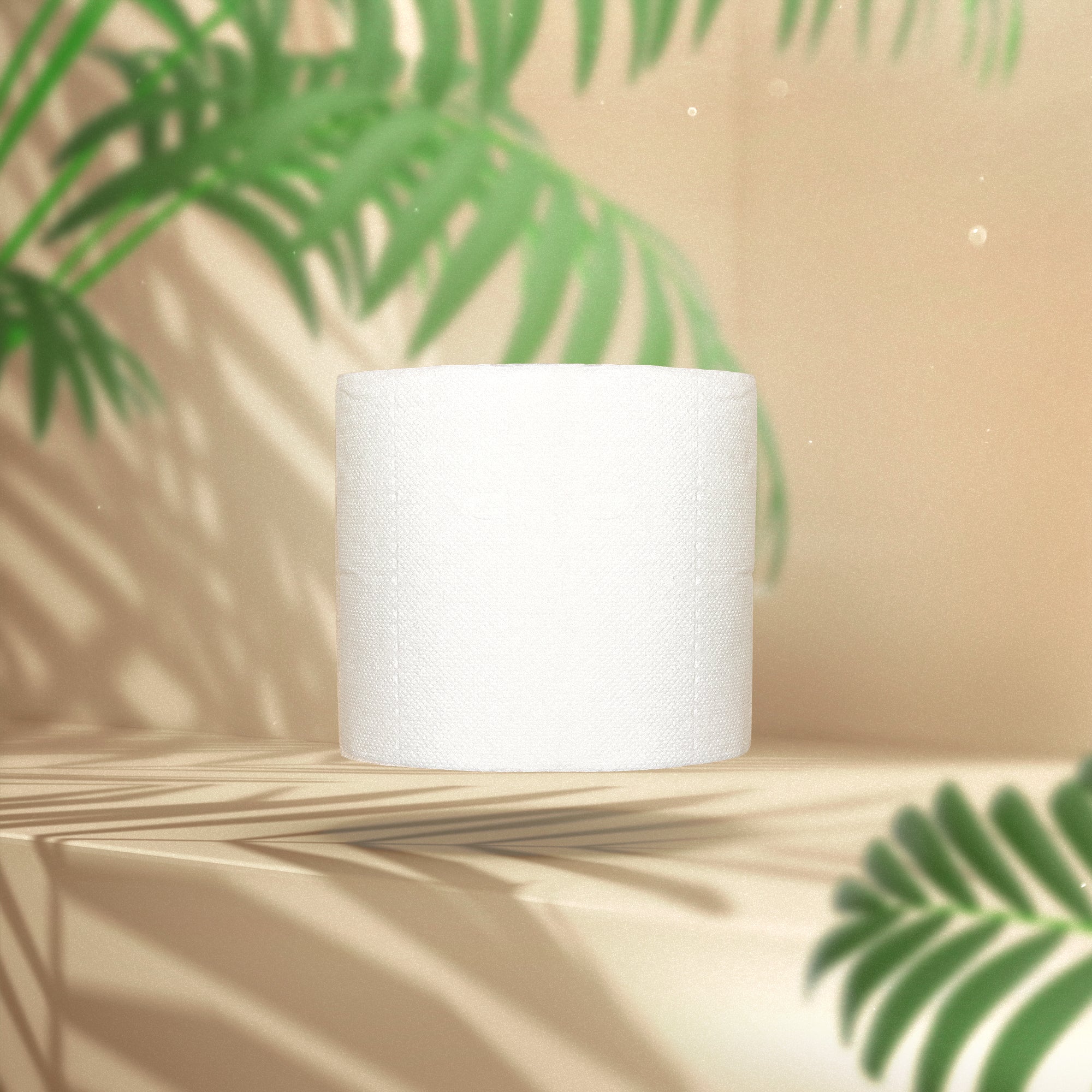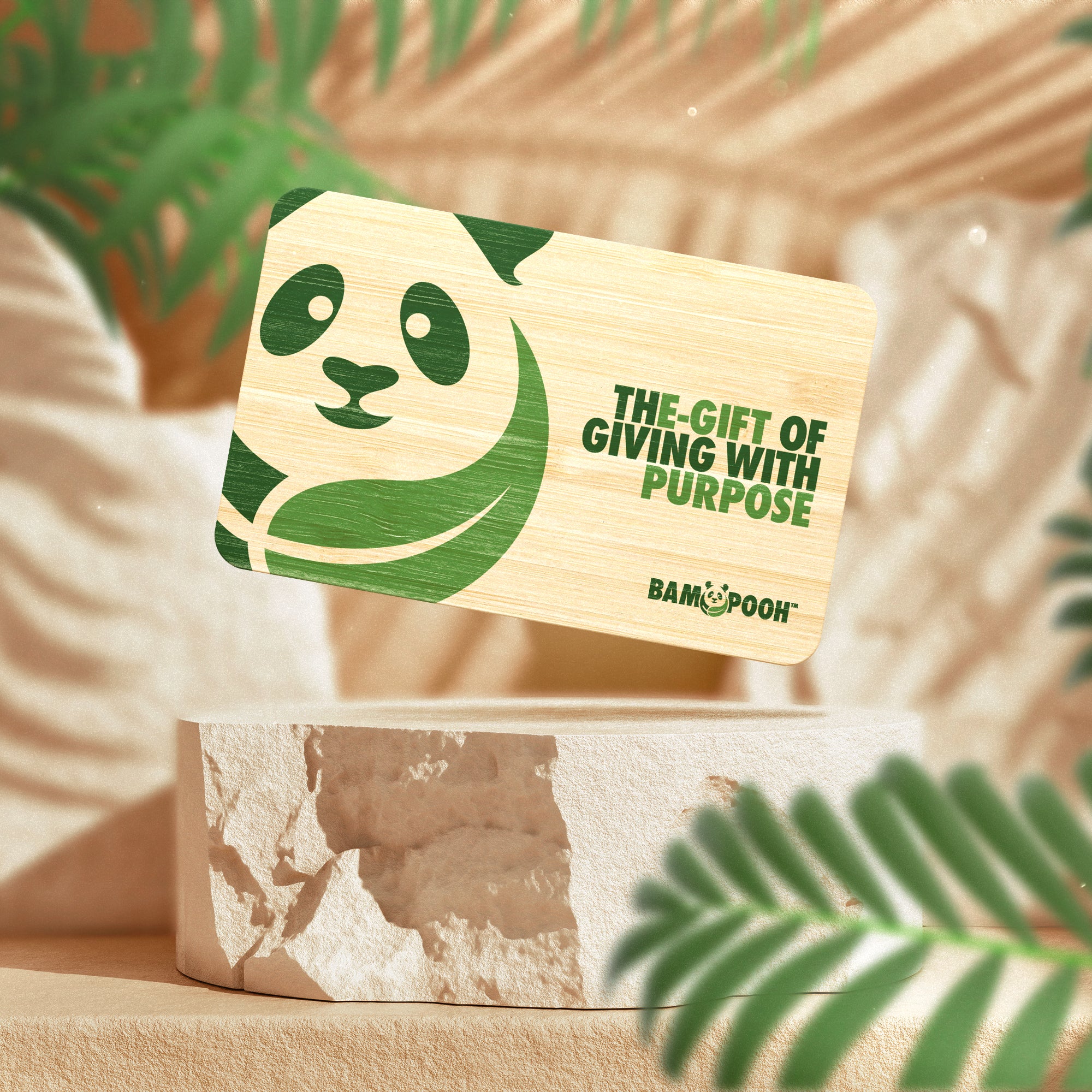Bamboo toilet paper has gained popularity in recent years as a more eco-friendly alternative to traditional toilet paper. With its claims of sustainability and environmental friendliness, many consumers are switching to bamboo toilet paper in an effort to reduce their carbon footprint.
However, some skeptics question whether bamboo toilet paper is truly as green as it is marketed to be. In this blog, we will explore the concept of greenwashing and assess the environmental impact of bamboo toilet paper compared to traditional toilet paper. We will also debunk the myth surrounding bamboo toilet paper and provide practical tips for making the switch.
Understanding Bamboo Toilet Paper
Before we delve into the environmental aspect of bamboo toilet paper, let's first understand what it is. Bamboo toilet paper is toilet paper that is made from bamboo pulp instead of traditional virgin wood pulp. This means that bamboo toilet paper production relies less on deforestation and contributes to the preservation of natural bamboo plantations. Bamboo toilet paper aims to be a more sustainable option, presenting an eco-conscious alternative to regular toilet paper.
The Process of Making Bamboo Toilet Paper
The manufacturing process of bamboo toilet paper begins with harvesting bamboo from sustainable bamboo plantations. Bamboo is a highly sustainable resource as it grows quickly, requires less water, and does not need pesticides or fertilizers to thrive. Once harvested, the bamboo is pulped and processed, resulting in bamboo pulp. This pulp is then used to make bamboo toilet paper, wiping out the need for traditional virgin wood pulp.
Bamboo toilet paper production boasts several environmental benefits compared to traditional toilet paper production. Firstly, bamboo plantations can grow and regenerate quickly, reducing the impact of deforestation on natural forest ecosystems. Secondly, the production of bamboo toilet paper uses less water compared to traditional toilet paper production, as bamboo plants require less water to grow. Furthermore, bamboo toilet paper production minimizes the use of harmful chemicals, contributing to a more eco-friendly manufacturing process. Additionally, bamboo toilet paper packaging is often made from recycled or sustainable materials, further reducing its impact on the environment. Finally, bamboo toilet paper production does not involve the use of chlorine bleach, which is commonly used in the production of traditional toilet paper and can be harmful to the environment.
Benefits of Using Bamboo Toilet Paper
Using bamboo toilet paper offers several benefits, making it a more sustainable and eco-friendly option for personal hygiene. Firstly, bamboo toilet paper is considered more sustainable because bamboo is a highly renewable resource. Unlike traditional toilet paper, which relies on virgin wood pulp, bamboo toilet paper production utilizes bamboo pulp, reducing deforestation and the impact on natural forests. In addition, bamboo toilet paper uses less water in its production process, as bamboo requires less water to grow compared to traditional wood pulp sources.
Apart from its environmental benefits, bamboo toilet paper also offers advantages for personal health and well-being. The natural properties of bamboo make it gentle and soft, making bamboo toilet paper suitable for sensitive skin. Bamboo fiber is naturally hypoallergenic, making it a preferred choice for individuals with skin sensitivities or allergies.
Another benefit of using bamboo toilet paper is that it is often free from harmful chemicals, dyes, and BPA. Traditional toilet paper may contain chemicals and toxins from the manufacturing process, which can be irritating and harmful to both the skin and the environment. Bamboo toilet paper, on the other hand, is typically free from these harmful substances, providing a safer and more eco-friendly option for personal hygiene.
Exploring the Concept of Greenwashing
Greenwashing, a prevalent issue, involves misleading consumers about the environmental practices of a company or the environmental benefits of a product. Many companies claim their products, including bamboo paper, are eco-friendly without sufficient evidence. The Natural Resources Defense Council (NRDC) suggests that bamboo products might not necessarily be the most sustainable option. It's essential to look out for certifications like Forest Stewardship Council (FSC) and consider the recycled content in tissue products to make an informed choice.
Definition and Explanation of Greenwashing
Greenwashing, a deceptive practice, involves presenting an eco-friendly image to mask harmful environmental impact and mislead consumers. It encompasses false or exaggerated environmental claims, lacking authenticity, and manipulates perceptions through deceptive marketing tactics. The explanation of greenwashing reveals the stark disparity between environmental claims and reality. Companies often use greenwashing to create a façade of eco-friendliness without genuine efforts towards sustainability. This misleading behavior can have detrimental effects, leading consumers to make uninformed choices.
Assessing the Environmental Impact of Traditional Toilet Paper
The production process of traditional toilet paper heavily relies on virgin fiber, leading to deforestation and a significant environmental impact. According to the NRDC, this process also involves the use of fertilizers and a large amount of water, contributing to water pollution and depletion. Furthermore, the Environmental Protection Agency highlights that the pulp and paper industry is the third-largest industrial emitter of global warming gases in the United States. Assessing the environmental impact reveals that traditional toilet paper is not the most sustainable option available.
Production Process and its Effects on the Environment
The production process of bamboo toilet paper involves the use of natural resources defense council, which promotes the use of bamboo products as an eco-friendly alternative to traditional virgin fiber tissue products. Unlike conventional toilet paper made from virgin fiber, the production of bamboo toilet paper requires less water and does not involve the use of fertilizers. This makes it a more sustainable option, in line with the forest stewardship council's guidelines for responsible forestry practices.
The Role of Deforestation in Traditional Toilet Paper Production
Traditional toilet paper production contributes to deforestation, leading to biodiversity loss and harming ecosystems. It accelerates soil erosion, disrupting natural habitats and endangering plant species and local wildlife. Moreover, the process results in significant landfill contribution. This impact highlights the importance of considering alternative options such as recycled paper or bamboo products, which are endorsed by organizations like the Natural Resources Defense Council (NRDC) and the Forest Stewardship Council (FSC), ensuring sustainable sourcing and responsible manufacturing practices.
Carbon Emissions from Traditional Toilet Paper Manufacturing
Manufacturing traditional toilet paper involves toxic chemicals and emits harmful carbon dioxide, with a significant carbon footprint. The use of chemicals and fertilizers in production contributes to environmental degradation, releasing harmful emissions that affect air quality.
Comparing Bamboo Toilet Paper and Traditional Toilet Paper
Bamboo toilet paper is known to be a more sustainable option than traditional toilet paper. When comparing these two options, it's important to consider factors such as the amount of water and use of fertilizers in production. Additionally, the Forest Stewardship Council (FSC) certification for traditional toilet paper and the natural resources defense council (NRDC) guidelines for bamboo toilet paper should be taken into account. Recycled toilet paper and bamboo products are also worth considering, as they play a significant role in environmental impact.
An Overview of Bamboo Vs. Traditional Toilet Paper
When considering bamboo versus traditional toilet paper, it's important to note that bamboo toilet paper is derived from highly sustainable bamboo resources, offering a more eco-friendly option. The manufacturing process of bamboo toilet paper utilizes less water and harmful chemicals, contributing to lower carbon emissions and reduced environmental impact. In contrast, traditional toilet paper production relies on virgin wood pulp, leading to deforestation. By opting for bamboo toilet paper, consumers can actively support better alternatives to protect local ecosystems and reduce deforestation.
Which is More Eco-Friendly: Bamboo or Traditional Toilet Paper?
When it comes to eco-friendliness, bamboo toilet paper takes the lead. Its production has a significantly lower environmental impact compared to traditional toilet paper. By switching to bamboo, you reduce the use of virgin wood pulp and support sustainability efforts. Plus, bamboo toilet paper production minimizes the use of harmful chemicals and toxins.
Debunking the Myth: Is Bamboo Toilet Paper Greenwashing?
Bamboo toilet paper has been marketed as a sustainable and eco-friendly alternative to traditional toilet paper. But is it all just greenwashing? In this section, we will explore the claims made by bamboo toilet paper manufacturers and evaluate the sustainability of this product. Stay tuned to find out if bamboo toilet paper is really a greenwashing myth or a truly eco-friendly option.
Analyzing the Claims of Bamboo Toilet Paper Manufacturers
Bamboo toilet paper manufacturers assert a reduced environmental impact compared to traditional paper. Emphasizing sustainable production processes and the use of highly sustainable bamboo resources, they highlight environmental benefits and claim reduced carbon emissions and resource conservation. This positions bamboo toilet paper as a friendly alternative with attributes like being the most sustainable option, as suggested by the Natural Resources Defense Council (NRDC) and Forest Stewardship Council (FSC). The manufacturing process also involves less use of fertilizers, making bamboo toilet paper an eco-friendly choice.
Evaluating the Sustainability of Bamboo Toilet Paper
Rooted in eco-friendly practices, bamboo toilet paper production significantly reduces environmental impact and conserves natural resources. The use of highly sustainable bamboo resources enhances overall sustainability while aligning with eco-conscious consumer preferences. Evaluating the sustainability of bamboo toilet paper underscores its eco-friendly credentials, making it the most sustainable option for environmentally conscious consumers.
Transparency in the Bamboo Toilet Paper Industry
Transparent practices in the bamboo toilet paper industry ensure environmentally friendly production, enhancing consumer trust and confidence. This commitment to openness fosters eco-friendly initiatives and promotes awareness of sustainable practices. By maintaining transparent manufacturing processes, the industry upholds its promise of sustainability and ethical production, providing consumers with the assurance that they are making an environmentally conscious choice.
Is Bamboo Toilet Paper Really an Eco-Friendly Alternative?
Bamboo toilet paper is indeed an eco-friendly alternative. Its production uses less water and resources, reducing its environmental impact. Bamboo pulp replaces traditional wood pulp, contributing to lower soil erosion and deforestation. By switching to bamboo toilet paper, you can reduce the carbon footprint associated with traditional manufacturing processes.
Conclusion
In conclusion, bamboo toilet paper offers numerous benefits for both the environment and personal use. It is a sustainable and eco-friendly alternative to traditional toilet paper, as it is made from fast-growing bamboo plants that require fewer resources and have a lower carbon footprint. The production process for bamboo toilet paper is also more environmentally friendly compared to traditional toilet paper, which contributes to deforestation and excessive carbon emissions.
While some may argue that bamboo toilet paper is a form of greenwashing, thorough analysis shows that it is a genuine and sustainable option. Transparency in the industry is crucial, and consumers should look for certifications and labels that guarantee the sustainability of the product.
Making the switch to bamboo toilet paper is simple with Bampooh, a leading provider of bamboo toilet paper. Shop our full selection of bamboo toilet paper to make the switch today.


